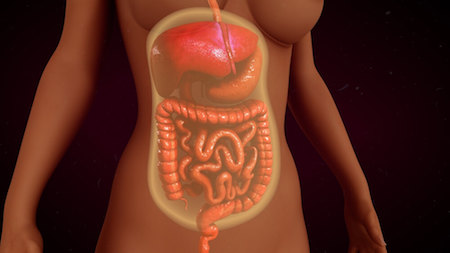Clinical Trial in the Treatment of Peritoneal Carcinomatosis (Malignant Ascitis)
 Clinical trial in the treatment of peritoneal carcinomatosis
Clinical trial in the treatment of peritoneal carcinomatosis
Oncothermia and Traditional Chinese Medicine (TCM) versus Chemotherapy
Dr. Pang’s team, Clifford Hospital, Guangzhou, China, recently published in the Molecular Clinical Oncology journal (Mol Clin Oncol, 2017 May; 6 (5): 723-732) the results of the Phase II Clinical Trial on the complementary use of Oncothermia in Peritoneal Carcinomatosis with malignant Ascitis.
The purpose of this study was to develop a safe and non-toxic alternative to the conventional conservative treatment of peritoneal carcinomatosis with malignant ascites (PCMA) by investigating the efficacy and safety of Oncothermia combined with the traditional Chinese medicine (TCM) ‘Shi Pi’ herbal decoction, compared with standard intraperitoneal chemoinfusion (IPCI).
A randomized, controlled, single-center, open-label clinical trial (phase II) with two parallel groups (allocation ratio, 1:1) was conducted to investigate the efficacy and safety of Oncothermia+TCM (study group, SG) vs. standard IPCI (control group, CG) in patients with PCMA by intention-to-treat analysis.
A total of 260 patients with PCMA were randomly allocated into the two groups (130/130); Oncothermia was applied for 60 min per session every second day for 4 weeks, for a total of 14 sessions. The TCM decoction was administered orally, at 400 ml daily. In CG, occlusive IPCI with cisplatin (30–60 mg) and fluorouracil (500–600 mg/m2) was applied twice, biweekly. The objective response rate (ORR), quality of life (QoL) and adverse event rate (AER) in the two groups were evaluated 1 month after treatment, analyzed and compared.
The present study is registered on ClinicalTrials.gov (NCT02638051). No case was lost or excluded (0/260).
[list type=”check”]
- The ORR in SG was 77.69% (101/130) vs. 63.85% (73/130) in CG (P<0.05)
- The QoL in SG was 49.23% vs. 32.3% in CG (P<0.05)
- The AER in SG was 2.3% (3/130) vs. 12.3% (16/130) in CG (P<0.05)
[/list]
All the adverse events were grade I.
Results
The combination of Oncothermia with TCM achieves better control of PCMA compared with standard IPCI, with less toxicity.
Both components of the combination are non-toxic treatments easily tolerated by patients.
Thus, this combined treatment may be preferred due to the better benefit-harm balance.
If you wish to expand the information regarding Oncotermia applied to cancers, you can visit the following link.



